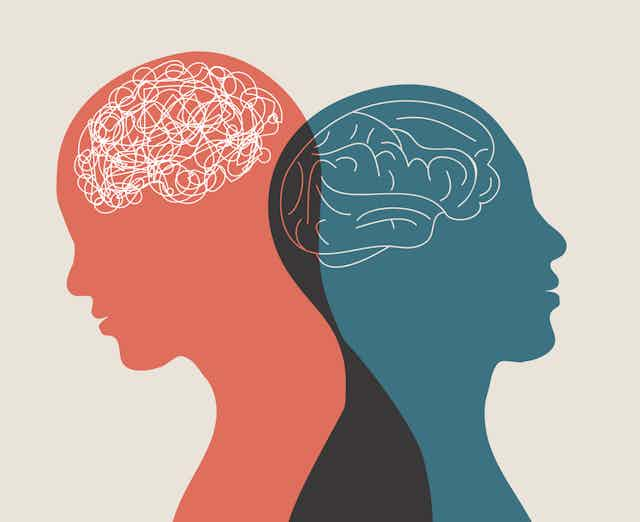Discover the Best Psychologist in Delhi for Effective Mental Wellness Support
Discover the Best Psychologist in Delhi for Effective Mental Wellness Support
Blog Article
Psych Treatment: A Comprehensive Guide to Results and strategies

Cognitive-Behavioral Treatment
Cognitive-Behavioral Therapy (CBT) is a widely made use of psychotherapeutic approach that focuses on recognizing and changing dysfunctional thinking and habits patterns. Created in the 1960s by Aaron T. Beck, CBT integrates behavioral and cognitive theories to attend to various mental health and wellness concerns, consisting of anxiety, anxiety, and stress-related disorders.
Methods such as cognitive restructuring, direct exposure treatment, and skill-building exercises are generally employed. Cognitive restructuring includes difficult and altering negative idea patterns, while direct exposure therapy aims to lower concern and stress and anxiety through gradual direct exposure to feared things or circumstances.
Evidence-based research sustains the effectiveness of CBT for a variety of emotional conditions - Best Psychologist in Delhi. Its emphasis on ability acquisition and self-help strategies equips clients to proceed progress independently after therapy concludes. The flexibility and effectiveness of CBT have actually made it a foundation in modern psychotherapeutic method
Psychodynamic Approaches
Rooted in the very early theories of Sigmund Freud, psychodynamic techniques focus on discovering the unconscious mind and its impact on behavior and emotions. These approaches aim to reveal covert ideas and feelings that may be driving maladaptive actions and psychological distress. Central to this technique is the concept of internal conflict, typically stemming from unsettled past experiences, specifically those from youth.
Therapists making use of psychodynamic strategies use several crucial methods, including cost-free association, where clients are urged to speak easily to expose unconscious material, and desire evaluation, which interprets the unexposed content of dreams. Furthermore, the expedition of transfer and countertransference characteristics within the therapeutic connection is vital. These interactions can offer insights right into the person's internal world and relational patterns.
Psychodynamic treatment is commonly longer-term compared to other modalities, using a deep and thorough understanding of the individual's psyche. Research study suggests that it can be especially efficient for complicated psychological wellness concerns, such as individuality problems and persistent clinical depression. By cultivating self-awareness and psychological understanding, psychodynamic treatment seeks to bring subconscious product to awareness, allowing people to accomplish long-term and purposeful adjustment in their lives.
Humanistic Strategies
Structure on the foundations laid by psychodynamic methods, humanistic methods provide a distinct perspective focused on individual potential and self-actualization. Stemming in the mid-20th century, these strategies prioritize the fundamental goodness and development possibility of individuals, emphasizing an all natural sight of human experience. Secret figures such as Carl Rogers and Abraham Maslow have actually substantially influenced this therapeutic strategy, which includes methods like client-centered treatment and Gestalt treatment.
Client-centered therapy, created by Rogers, plays a crucial function in humanistic techniques. It counts on the therapist giving an atmosphere of unconditional favorable regard, compassion, and harmony. This promotes a safe room for clients to discover their feelings and experiences without judgment, helping with self-discovery and individual growth. The therapist's duty is more of a facilitator than an authority, urging clients to harness their inner sources for healing.
Gestalt treatment, another essential humanistic technique, stresses existing moment awareness and the combination of mind and body. By concentrating on the "present moment," customers acquire better insight into their present feelings and behaviors. Methods such as role-playing and assisted visualization are commonly employed to help clients get a deeper understanding of themselves, ultimately causing boosted self-awareness and fulfillment.
Integrative Therapies
Integrative treatments stand for a synthesis of numerous therapeutic methods tailored to satisfy the one-of-a-kind needs of each client. This method recognizes the intricacy of human psychology and the complex nature of mental health issues. By integrating aspects from various colleges of psychiatric therapy-- such as cognitive-behavioral treatment (CBT), psychodynamic therapy, and humanistic strategies-- integrative therapies supply a more adaptable and all natural treatment standard.
Specialists of integrative therapy examine each customer's certain requirements, signs, and individual history to devise a customized therapy strategy. This customized technique improves the possibility for healing success by resolving the origin of mental distress and promoting overall health. Strategies could consist of mindfulness exercises, cognitive restructuring, and emotional handling, each chosen to target different aspects of the customer's problems.
In addition, integrative treatments emphasize the therapeutic partnership, checking out the client-therapist bond as an essential element of effective therapy. This partnership promotes a supportive setting where clients feel secure to explore and resolve their worries. The adaptability of integrative treatments makes them suitable for a broad variety of conditions, consisting of anxiousness, clinical depression, injury, and social problems, consequently raising their applicability and performance in varied clinical settings.

Gauging Therapy End Results
Evaluating the effectiveness of psychotherapy is vital for both clients and clinicians to guarantee that the therapy is generating the preferred outcomes. To achieve this, various methods and devices are employed to gauge therapy results methodically. Standardized assessment tools, such as the Beck Clinical Depression additional info Inventory (BDI) and the Generalized Stress And Anxiety Problem 7 (GAD-7), offer measurable information on sign intensity and changes over time.
In addition to standardized devices, qualitative techniques like customer self-reports and medical meetings supply beneficial understandings right into see this website the personal experiences and perceived progress of clients. On a regular basis arranged analyses, generally at the beginning, midpoint, and end of treatment, assistance in tracking the trajectory of improvement or determining locations requiring change.
Outcome measurement is not limited to sign decrease; it additionally incorporates useful improvements in every day life, such as much better interpersonal connections, boosted work performance, and boosted total health. Modern advancements in digital health have introduced mobile applications and online systems that promote real-time surveillance and responses, better improving the analysis process.
Inevitably, a thorough strategy to gauging treatment results makes sure that restorative interventions are efficient, efficient, and tailored to fulfill the specific requirements of clients, thereby optimizing the total healing experience.
Final Thought
Humanistic methods concentrate on individual development and self-actualization, while integrative therapies combine multiple methods for tailored treatment plans. Examining therapy results through qualitative approaches and standardized evaluations makes certain a comprehensive understanding of effectiveness, inevitably guiding clients towards sustaining mental health and wellness renovations.
From the organized approach of Cognitive-Behavioral Therapy (CBT) to the deep expedition of the subconscious in psychodynamic treatment, each method brings distinct benefits. Its focus on ability procurement and self-help techniques empowers clients to continue development individually after treatment concludes (Best Psychologist more in Delhi). Secret numbers such as Carl Rogers and Abraham Maslow have actually significantly influenced this therapeutic method, which includes techniques like client-centered treatment and Gestalt treatment

Report this page